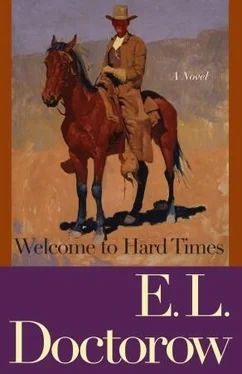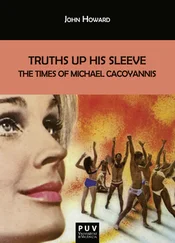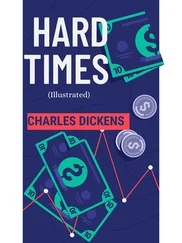But Jimmy had only seen something and gone to take a closer look. For a long time the rig was a black spot in my eye and finally it moved; and a while after they were back at the cabin.
“What’s out there Jimmy?” I said.
He looked at Molly. She got down and went inside and he followed her.
I went after. “I said what’s out there, boy, where’s your voice?”
“Wagon.” Another look at Molly. Her mouth was set tight.
“One wagon?”
“Yes.” And then with a rush: “It’s busted in the back and the man’s settin’ up there and she’s screamin’ at him.”
“Who is?”
“Why that woman, she’s—”
“Jimmy!” Molly said.
“Who are they?” I turned to her.
“How should I know who?”
“Well didn’t you speak to them?”
“Oh sure! I’ll go around greetin’ every lowlife on the prairie!”
I went out and found Zar and told him what they’d seen. He was busy with his still but he said I could take his team and wagon. I hitched up four and Jenks reckoned he’d come along and we got up and started off. Why was I taking Zar’s wagon and not the mule and rig? I guess Molly understood better than I: We passed the cabin and she came out of the door, Jenks tipped his hat to her but she cried: “I know what you’re doing! Go get ’em Mayor, more fools for your town!”
We found it due south, sitting on the trail that edged the flats: it was just as Jimmy said, an old Murphy wagon stuffed to its cover, a man was sitting on the box and the back wheels of the wagon were splayed out like a new colt’s legs. The man was yellow-haired and beardless, his hands hung down between his knees and he watched us with eyes as baleful as his oxen’s. No woman was screaming at him, but further off walking away through the scrub with a shawl over her head she was raising her arms and shouting at the sky.
The man said: “Ay ben looking for Svedes.”
I said: “Well there’s none hereabouts so far as I know.”
He nodded as if he didn’t expect otherwise. Jenks and I climbed down to take a look at the axle, and when we did the man stepped off his box and he was the tallest fellow I ever saw, he must have been six and a half feet. He walked clumsy like a big man; he was fair-complected with strawberry skin, on the side of his neck there was a wen the size of a cannonball.
The axletree was split clean through, each half was poking into the ground. “You carrying another one?” I said.
“No. No oder.”
Off aways the woman kept shouting, it was the only sound in our ears and the man got embarrassed. “My vife,” he said tapping his forehead and he smiled ruefully.
“You a nester?” Jenks said looking up at him.
“Ya, I vas.”
Jenks nodded: “Prairie’ll do hit—”
“Ya.” We all looked at the axle. “She beg me for tree yar go wit oder Svedes. Cry each night … But I hope rain vill come. But no rain. Now I look for Svedes, maybe her mind comes back.”
Swede’s voice was as deep as the lowing of a cow, but it was a gentle voice with no harshness to it. He didn’t cry about his misfortune but told it straight. I liked him right off. I told him there wasn’t much we could do about the axle but he could put up in the town awhile and maybe get hold of another by and by. He agreed to that so we started to unload his gear. We spent a good hour putting it on Zar’s wagon, these people were carting everything they’d ever owned. There was a frame bed, a bureau with four drawers, an oak table, a commode, bedding, chairs, stools, a churn, a kettle, a washtub, some iron pots, a plow with a steel share, a sack of corn — it was no wonder their old wagon gave out.
The woman had come back to peek at us while we worked and it unsettled Jenks to catch her staring around the side of the wagon. It didn’t bother me none. She was a stocky woman, when her shawl slipped it showed her hair which was light-colored and sparse, her face was honest enough but there was nothing to hold on to in her eyes.
I’d worked up a good thirst by the time we were through. There was about another hour of sun left in the sky. I said: “Your wagon should pull now with nothing on it. We’ll tote your things in, you follow us straight that way.”
“Good. Helga!” he called to the woman. He went over to her and began to talk to her as to a child, pointing to Jenks and me. Without any warning she started screaming at him and then hitting him. She barely came high as his chest but she swung up and slapped his face again and again and beat at his arms. He made no move to stop her but just stood waiting for her to spend herself.
“Godamighty,” Jenks said.
“Let’s get up on the wagon,” I said. It put our backs to the sight, I didn’t like to see something like that.
“Godamighty,” Jenks swore as we sat waiting, “a jahnt lahk thet a sufferin’ sich blows!”
After a while we didn’t hear anything and as I turned the man was lifting his wife to the back of our wagon, sitting her on a chair so that she faced rearwards. She made no protest and he said: “You vill see me, Helga, ya?” We started off, the horses pulling hard, and I didn’t have to hold them, the weight did that. Behind us the man snapped his quirt over the oxen and they began to draw the covered wagon. It wobbled but it went, the axle scratching a furrow in the ground.
When we were back at the town the man was still halfway across the flats. “Leave everything be until he gets here,” I told Jenks. He went into Zar’s place and in a moment Zar and his ladies came out to look, and Isaac Maple from his tent. Molly and Jimmy came over, everyone stared up at the woman on the wagon. The ladies went around to the side to look at all the furniture. Not one word was spoken and the woman sat still up on the chair keeping her gaze out to the flats where her husband was coming. I went to the well for a drink and when I looked back I saw the woman bend over with her hands on her knees, and she spat at Molly’s feet.
Well in a moment Molly was by me at the well. I thought it was anger giving her tremors but she was grey with fear. “Now Molly,” I said, and she allowed me to hold her arm, “that’s nothing but a poor old nester’s wife.”
And that was how Bergenstrohm came to settle. But we never called him anything but Swede.
It was Isaac Maple who took the couple under care. Everyone else was put off by the woman’s madness but Isaac said: “My mother had spells from her change of life, my grandmother ’fore her, I seen it since I was a boy it don’t bother me.” He offered his tent for storing their furniture. He had Swede pull his wagon alongside of the tent and the two of them propped up the back with rocks. They put the bed and bureau back in the wagon and Isaac said, “Ye kin keep a nice house in there fer the time bein’.”
He must have decided right off to give them credit. He paid me a dollar a day for their water although I told him there was no need. He thumbed through one of his catalogues and found a steel axle he could order that would fit the old Murphy wagon. He was taking care of the Swede like he was his own brother.
“Wal,” Zar said to me one day, “is no meestery. The man has wagon.” That was true as far as it went, Isaac needed something to fetch lumber in if he wanted to build himself a proper store; until now Zar’s wagon was the only one he might have had, and he would sooner have given up his plans than ask for it. But I have a feeling Isaac would have welcomed these people had they only a handcart. I think it was enough that they had come to the town after him. Isaac was the kind of chary person who’s always looking for someone to trust. He couldn’t trust any of us who’d been there before him; but the Swede came off the flats as he himself had the autumn before, and that was as good as a ticket from Vermont.
Читать дальше











